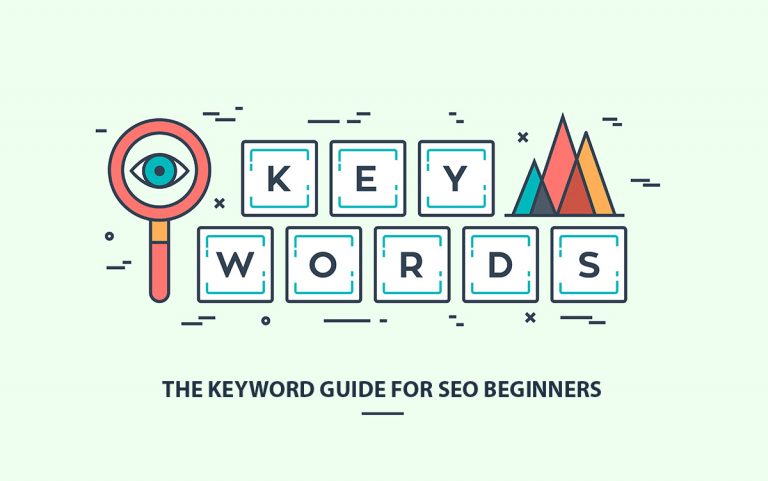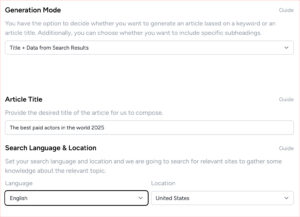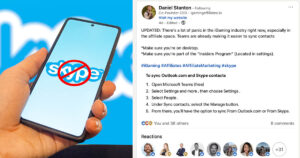Somebody said “Keywords Are Important” and you Googled it. Congratulations, you’ve found the right article. This is The Keyword Research Guide for SEO Beginners.
What are keywords?
Before we move in to any further details in the keyword research guide, let’s start with the basics. Ranking high in Google’s search results will become a lot easier once you understand what keywords are. Keywords are the most commonly used words that users type in search engines.
For example, let’s say that, in the SEO niche, the search phrase ‘SEO Tips’ is the most searched phrase. If you run a digital marketing website, it would be wise to include the exact keywords ‘SEO Tips’ somewhere on your website, since it is the most highly searched phrase among users looking for SEO services.
Another great example is in this very post itself. We obviously want people looking for knowledge on the topic of keyword research, so in the different headers and titles you will find phrases such as ‘What are Keywords?’, ‘Why are Keywords Important?’ and ‘How to Find Keywords’.
Google records everyone’s search phrases. The most used ones are all being targeted by the top websites in your niche.
It’s in Google’s interest to best serve website owners and users, in order to maximize the most traffic to their search engine. So they make it easier for everyone by (1) giving users exactly what they searched for, and (2) providing website owners with valuable info about exactly what people are looking for.
Why are keywords important?
Keywords are the tickets that users have in order to get to your website. If you do not include keywords on your website, you are essentially refusing to sell tickets to potential customers.
That is why in this keyword research guide we want to emphasise that it is extremely important to include the right keywords on your website. You want to answer customer’s problems exactly the way they have their problems spelled out.That is why keyword research is important; whole businesses have been created just by scanning the most searched keywords in a niche and targeting them through their website.
How to search keywords
How do we utilize keywords and get all the traffic? Firstly, we have to find the right keywords.
The easiest way to start is to find a keyword search tool or utilise keyword research services, and there are many of these.
Google’s Keyword Planner is one example. You just have to type in the name of your niche, and a list of the most commonly searched phrases related to your niche will pop out. These are updated regularly, so the most recent search phrases will show. They do change from time to time so it is important that you constantly update your list of keywords to keep up with the trends.
Popular Keyword Research Tools
- Google Keyword Planner
- Ahrefs
- Keywords Everywhere (A great chrome add-on)
- Ubersuggest
These tools will create lists for you. In the keyword list that is provided, you will find which phrases have the highest volume of searches.
Obviously, you want to target the words with the highest volume of searches. However, as you probably have guessed by now, this will run you into a bit of trouble. You will, unfortunately, have to deal with tons of competition with important words that have the highest search volume.
Google traces words that are typed in its search engine and then finds every website on the web that includes those words. This generates a list of hundreds and thousands of pages. To get your site shown on the first page takes time, effort, and specific optimization (which we can talk about another time).
This article just teaches you the basics of keyword optimization, an essential part of overall SEO optimization.
Selecting the right keywords
So what do you do when you bump into high competition keywords?
First, let me say, money talks. In the list generated from your keyword research tool, you will see a pay-per-click cost column for every search phrase. This is how much it will cost you to run ads under the selected keyword phrases. The higher the cost, the tougher the SEO competition is on that keyword. This is a general rule of thumb when fishing for specific keywords. If it costs anywhere from three to six dollars per click, it is generally considered to be in the upper tier bracket. Not exactly the best place to start for beginners.
If you are a beginner (remember – this keyword guide is for SEO beginners), what you want to do is to find keywords that are listed at a lower price. Your best bet is to target keywords that have 100-300 searches per month, which are generally well under the three-dollar per click rate. This will give you enough steam, experience and revenue to work up to higher keywords.
As long as you start with the lowest possible search traffic keyword and work your way slowly from there, you should be fine. This, of course, can be bypassed if you initially have lots of money to start with. You can outbid your competitors by paying for Google ads and selecting the highest value keyword from the get go.
So far you have learned how to search for keywords and how to work your way up by targeting the lower searched ones. This is a great place to start.
Create keywords by being creative
There are also other ways to search for keywords that can help you stand out from your competitors. That is, just being creative with them.
Picture yourself as one of your customers that is in need of your product.
What would they type in Google to search for your product? What would your mum or dad type in to search for your product? What about your aunt and your uncle?
Think of the different personalities that could be searching for your product through Google. They will each have their own way of searching for your product. They will each have their own burning desires that they will express through Google searches.
What I am trying to get you to think is what are all the different ways a user can type in and search for your product. If you are selling SEO, there are dozens upon dozens of factions and various ways of searching for SEO services.
There are, for example, quite a few ways of searching for basically the same thing:
- SEO tips
- SEO optimization
- Free SEO Services
- SEO for beginners
- SEO basics
- etc.
So for your niche, make a list of all these potential keywords. Then search for their search volume through Google Keyword Planner or any other keyword research tool.
Specific and less specific keywords
Generally, the less precise the search words, the wider varied your search results will be. However, if you include more words, to make it more precise, the more specific your search results will get.
For example, the search phrase ‘Digital Marketing’ will get all sorts of articles popping out. If you type in ‘Digital Marketing for SEO Websites’, then your search results will greatly narrow.
This is important to keep in mind when you are creating your website and targeting for certain keywords.
If you provide a specific service, map out the very specific keywords that people will type in for that particular service. For example, if you sell sports clothing, but specifically sell a unique sports bra, you can target potential specific but high traffic keywords such as ‘sports bras for slim body’.
Examples:
- “Sports clothing” = Broad and not specific
- “Sport bras” = Less broad, more specific
- “Sport bras for slim body” = Precise
- “Black Adidas sport bras for slim body” = Very precise
Compare the image results for these two searches and you will understand the difference:
How to use keywords
With the help of this keyword research guide you should now have collected your list of keywords and know what you want to try to rank. Now it’s time to start adding things to your website.
Some places to put the keywords:
- In your content
- In your titles
- In headings and subheadings
- In your meta descriptions
- In your URLs
- Etc etc…
It’s very important that you do this in a natural way. The experience of the website visitor needs to be good. If you need help doing this you can contact us at Topcontent. We are experts at creating SEO optimized content.
Dos and don’ts of keyword use

You need to specify and narrow as much as you can. This almost means that specific keywords have to be involved.

Google’s algorithm can easily detect whether or not keywords are being crammed into your content, which makes you seem less credible in Google’s eyes, which hinders your overall SEO score.



Targeting local areas for your service can also be a great way to boost your SEO for your website when starting out.

Keyword research guide wrap up
Google connects users and web owners through keywords. Including these keywords in your titles and in your content lets users find you.
Using a keyword research tool or keyword service is a must to get the data on which keywords users are searching for the most. The more volume a keyword has, the more money you will have to pay in order to get any value from adding those keywords in; otherwise, you will be buried under other, already existing websites.
Starting with low search volume keywords is a good strategy to work your way up and actually get results from adding in those keywords. Think of all the ways users can search for your product. These are all viable keywords that you can include in your website.
All the other marketing you do for your website can be doubled in value instantly if you add in the right high volume keywords so you can get all the traffic from Google.
Get help with keyword research
We hope this keyword research guide was helpful and will guide you through the steps of finding the perfect keywords for your website. However, if you have any doubts or don’t have time to complete keyword research yourself, we can help you! At Topcontent we are experts of content and SEO and offer keyword research services. We can help you with the keyword research and craft amazing content that targets those keywords. You need great content to make your website rank.
Don’t forget to take a look at our online content writing services and read from Topcontent reviews how we have helped other online businesses succeed.
Contact us to get started with your website content!








